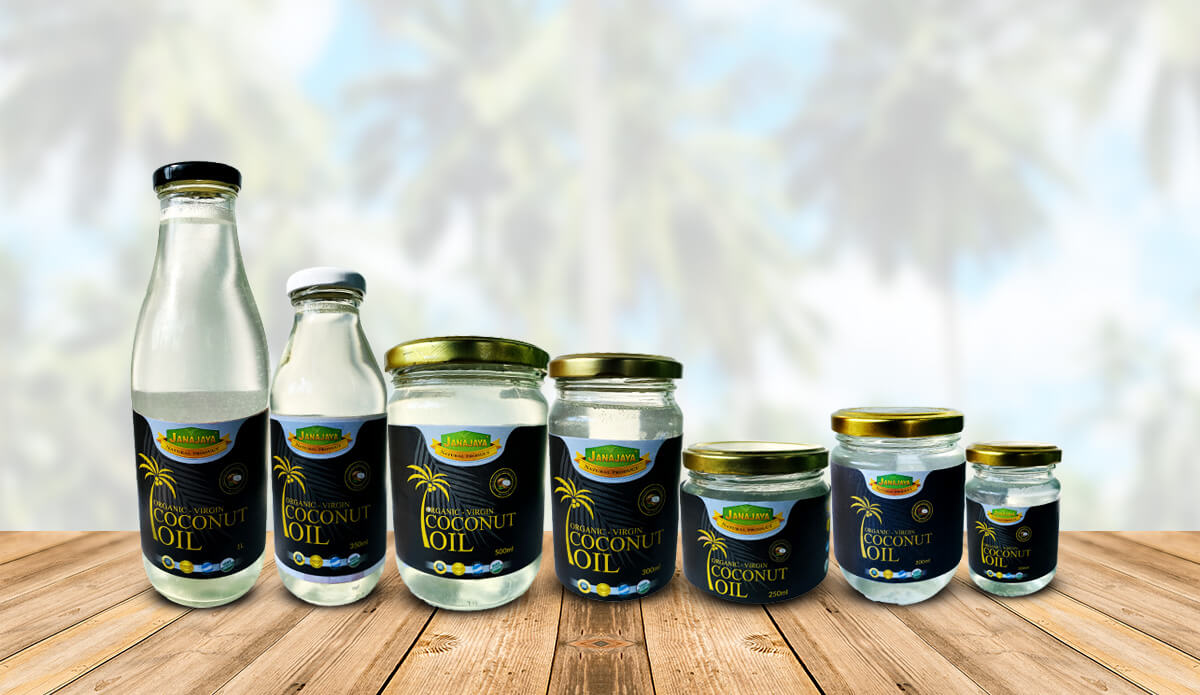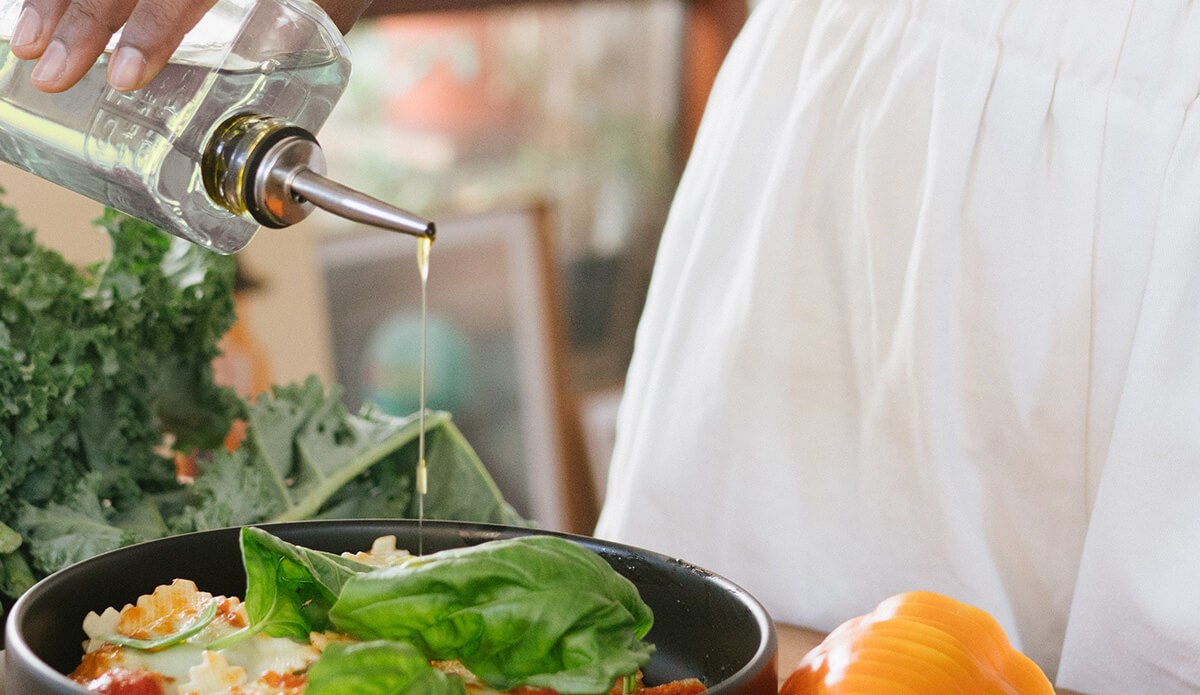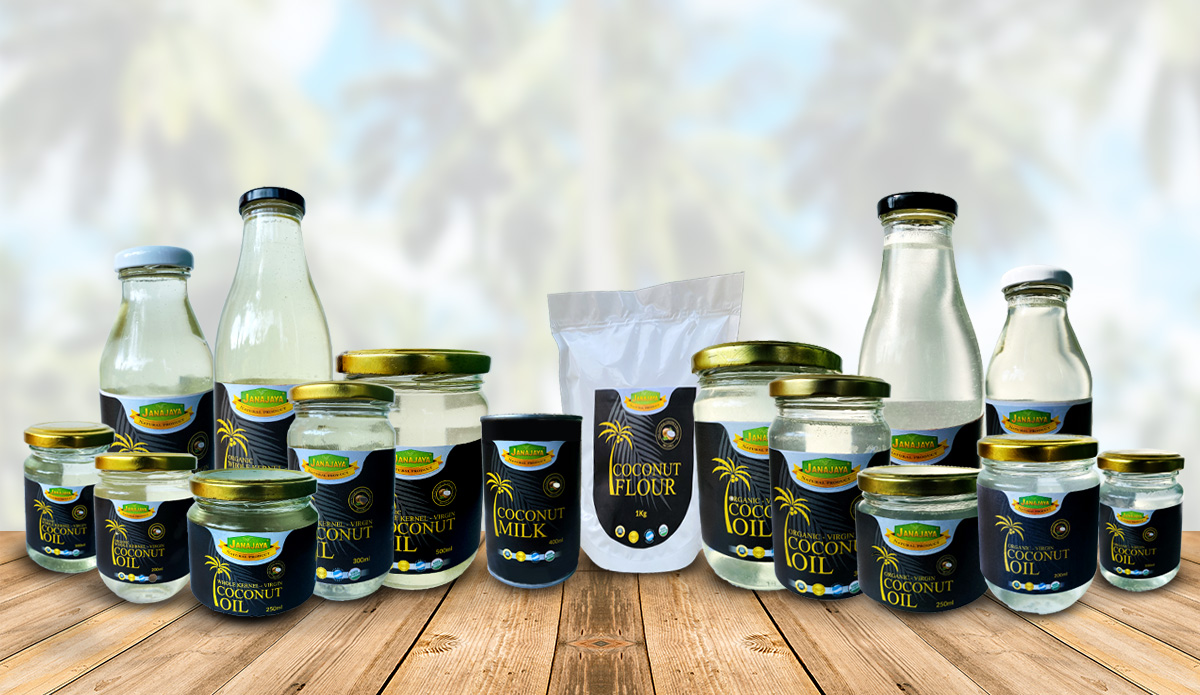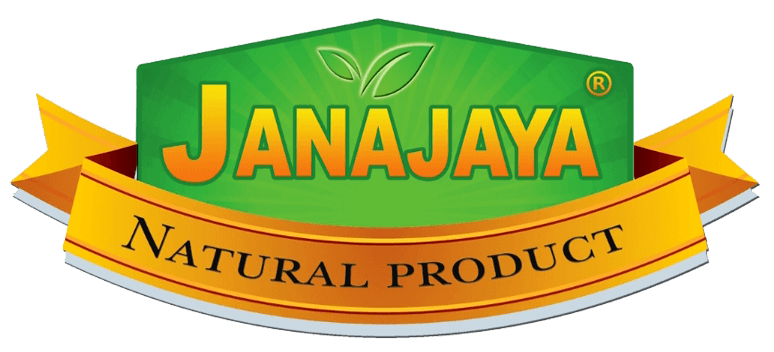


Virgin Oil Nutrient Chart
| Nutrient | Per 100 ml |
| Calories | 818 kcal |
| Total fat | 90.90 g |
| Fatty Acids Total Saturated | 84.80 g |
| Fatty Acids Total | 4.90 g |
| Fatty Acids Trans Fat | 0 g |
| Cholesterol | 0 g |
| Total Carbohydrates | 0 g |
| Dietary Fibers | 0 g |
| Sugars | 0 g |
| Protein | 0 g |
| Sodium | 0 g |
Size Chart
| Glass Jar | 100 ml |
| 200 ml | |
| 250 ml | |
| 300 ml | |
| 350 ml | |
| 500 ml | |
| 1000 ml |
Virgin Coconut Oil
The main distinction between regular and virgin coconut oil lies in the making and extraction. Virgin oil is extracted from coconut milk got from fresh coconuts. Then it undergoes several processes like fermentation, churning (centrifugal separation), refrigeration and the enzyme actions after this oil is parted from moisture.
The raw materials and process of extraction of virgin oil do not allow any usage of heat. So, it is potent to take extreme care while selecting the kernel and raw ingredient coconut milk should not be exposed to heat or sunlight throughout the complete process. Sometimes virgin coconut oil is made directly by cold compression of fresh dried coconut meal called micro expelling.
Virgin coconut oil obtained by cold compression method is considered far better than that extracted by the fermentation method. As the oil obtained by fermentation has high moisture content and can get spoiled faster. During winter season if you need to melt the oil, take oil in a small glass and place the glass in warm water, never melt it directly on the heat.
Benefits of Virgin Coconut oil
Virgin coconut oil has a unique taste and cologne which is heaped with a whopping amount of essential fatty acids and antioxidants. This liquid gold provides you with a host of medicinal and therapeutic properties.
Nutrition
Almost all the calories in coconut oil come from fat which may sound quite scary, but fat is also one of the essential macronutrients required to perform several bodily functions. Fat is essential to assimilate fat-soluble vitamins, produce hormones, guard the organs and maintain the body temperature within the normal range.
Calories
One tablespoon of coconut oil contains 13.5 grams of fat, one gram of fat provides 9 calories, so one tablespoon will provide you about 120 calories.
Great Energy Booster
Coconut oil is mostly used by athletes, bodybuilders and weight watchers. The fat present in coconut oil is quickly converted into an instant source of energy and does not lead to building up of fat in the heart and arteries. Furthermore, it helps to boost energy, endurance and boost the overall performance of athletes.
Saturated Fat
Saturated fat always has a bad standing, as it can rise up the level of bad cholesterol in the blood and increases the risk of heart disease. Not more than 10% of the total calories in the regular diet should come from saturated fat. The saturated fat in about one tablespoon of coconut oil is 90% of which half of it is lauric acid. This fat substance has an entirely different chemical structure than all other types of saturated fat, thus promotes to increase high-density lipoprotein or HDL. However, use sparingly because it is still high on fat and calories.
The medium-chain triglycerides are believed to digest well into the system.
Lauric acid constitutes about 40% of the total fat, followed by capric acid, caprylic acid, myristic acid, and palmitic acid. The body converts lauric into monolaurin, which aids in fighting with viruses and diseases.
Capric acid responds with enzymes produced by bacteria which later converts it into a potent antimicrobial agent monocarpin.
Caprylic acid, caproic acid, and myristic acid exhibits strong antimicrobial and antifungal properties. Stearic acid has potential cleansing and solidifying properties which are used extensively in skincare essentials
